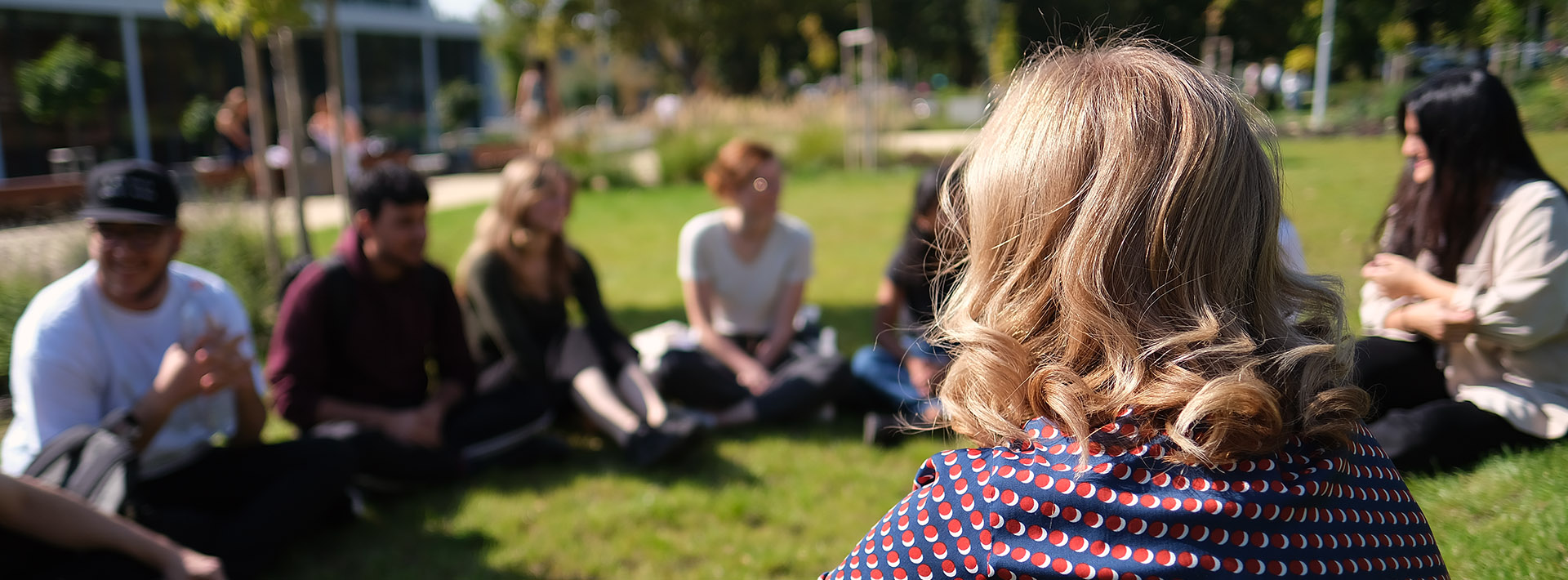Daten
Offizielle Daten in der Fachveröffentlichung für das folgende akademische Jahr: 2022-2023
Lehrbeauftragte/r
-
Dr. Katalin EKLICS-LEPENYE
assistant professor,
Department of Languages for Specific Purposes -
Semesterwochenstunden
Vorlesungen: 0
Praktika: 0
Seminare: 24
Insgesamt: 24
Fachangaben
- Kode des Kurses: OAE-N66-T
- 2 kredit
- General Medicine
- Elective modul
- spring
OAE-N65-T completed
Zahl der Kursteilnehmer für den Kurs:
min. 3 – max. 15
Thematik
Taking medical history with actors; simulation practices in the MediSkillsLab 2 is the second course following the first with the same name.This course also involves specialists as the interdisciplinary characteristic is inevitable to provide professional, linguistic and communicative approaches.Although based on history taking and empathetic skills developed during the first course, this course ushers the students into different specialties where we focus on filter questions (gastroenterology, cardiology, neurology, orthopedics, gynecology). Further emphasis is given to improve interviewing skills when taking the history of addicted and psychosomatic patients. Professional actors and lay volunteers are prepared for the scenarios as Standardized Patients applying authentic case reports. Simulated patient interviews may be video-recorded and evaluated based on guidelines provided in the beginning of the semester for observation and evaluation.
Vorlesungen
Praktika
Seminare
- 1. Revision of history taking.
- 2. Doctor-patient interaction. Video-based analysis.
- 3. Simulated patient-doctor-relative encounter in internal medicine.
- 4. Simulated patient-doctor-relative encounter in internal medicine.
- 5. Simulated patient-surgeon interaction. Convincing techniques.
- 6. Simulated patient-surgeon interaction. Convincing techniques.
- 7. Simulated patient-gynecologist interaction. Bad news. Infertility.
- 8. Simulated patient-gynecologist interaction. Bad news. Infertility.
- 9. Simulated patient-neurologist interaction. Trauma. Information about altered life-quality.
- 10. Simulated patient-neurologist interaction. Trauma. Information about altered life-quality.
- 11. Simulated patient-psychiatrist-relative interaction. Suicide attempts. Educating relatives.
- 12. Simulated patient-psychiatrist-relative interaction. Suicide attempts. Educating relatives.
- 13. Simulated patient-oncologist-relative interaction. Delivering bad news. Educating relatives about palliative medicine.
- 14. Simulated patient-oncologist-relative interaction. Delivering bad news. Educating relatives about palliative medicine.
- 15. Simulated patient-dermatologist interaction. Educating patients about outcome of an STD.
- 16. Simulated patient-dermatologist interaction. Educating patients about outcome of an STD.
- 17. Simulated patient-gynecologist-psychiatrist interaction. Treatment strategies for abused women.
- 18. Simulated patient-gynecologist-psychiatrist interaction. Treatment strategies for abused women.
- 19. Simulated patient-nurse-doctor interaction. Diverse intercultural background. Overcoming communication problems.
- 20. Simulated patient-nurse-doctor interaction. Diverse intercultural background. Overcoming communication problems.
- 21. Patient-centred approach in paediatrics.
- 22. Patient-centred approach in paediatrics.
- 23. Assessment.
- 24. Assessment.
Materialien zum Aneignen des Lehrstoffes
Obligatorische Literatur
-
Vom Institut veröffentlichter Lehrstoff
Self-made digital educational materials: video-recorded doctor-patient conversations, history-taking interviews..
Jegyzet: Eklics-Koppán: Language and Communication Specific Attributes of Medical History
Skript
Eklics-Koppán: Language and Communication Specific Attributes of Medical History
Empfohlene Literatur
-
Voraussetzung zum Absolvieren des Semesters
Maximum of 25 % absence allowed
Semesteranforderungen
The seminar is practice-based thus assessment of students includes individual history taking scenarios with actor-patients in the simulation lab that are video-recorded, analyzed and finally evaluated. Assessment criteria are informed in the beginning of the semester
Möglichkeiten zur Nachholung der Fehlzeiten
Due to the character of the seminar make-up work for legitimate absences is not feasible.
Prüfungsfragen
The seminar is practice-based thus assessment of students includes individual history taking scenarios with actor-patients in the simulation lab that are video-recorded, analyzed and finally evaluated. Assessment criteria are informed in the beginning of the semester.
Prüfer
Praktika, Seminarleiter/innen
- Dr. Bán Ildikó
- Dr. Fekete Sándor
- Dr. Kittka Bálint Pál
- Dr. Kozma Petra Kata
- Dr. Laczy Boglárka
- Dr. Molnár Gergő Attila
- Dr. Sándor Zoltán
- Dr. Sebők Judit
- Dr. Sélley Eszter
- Eklicsné Dr. Lepenye Katalin
